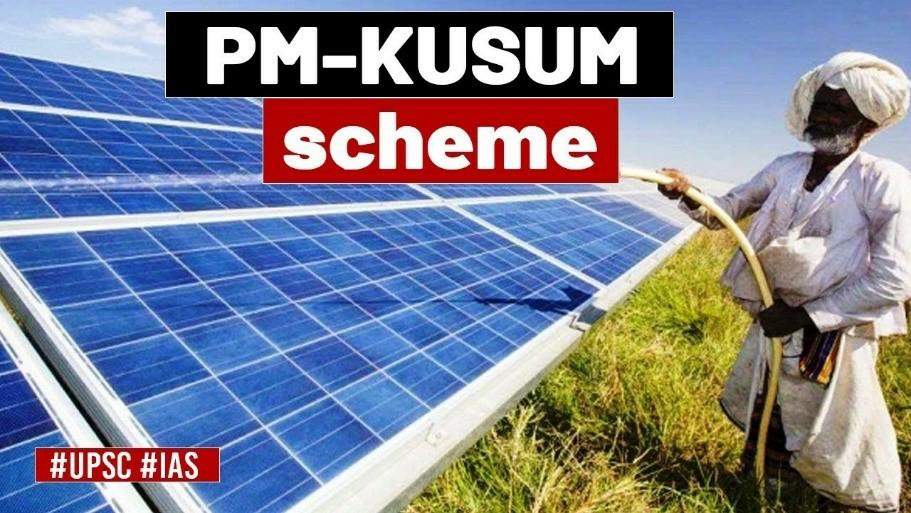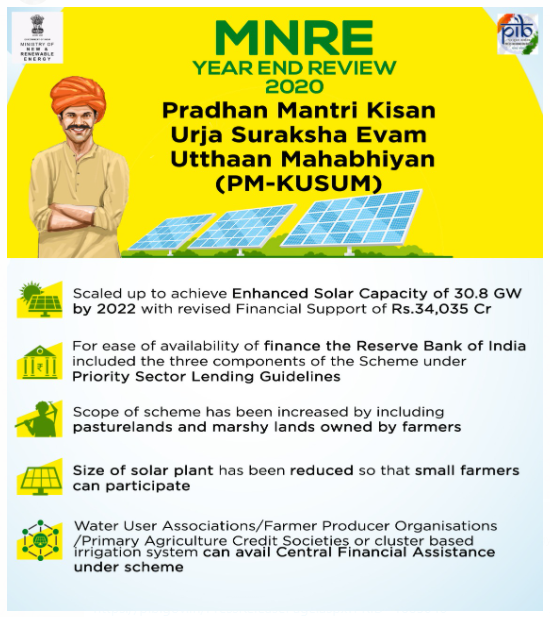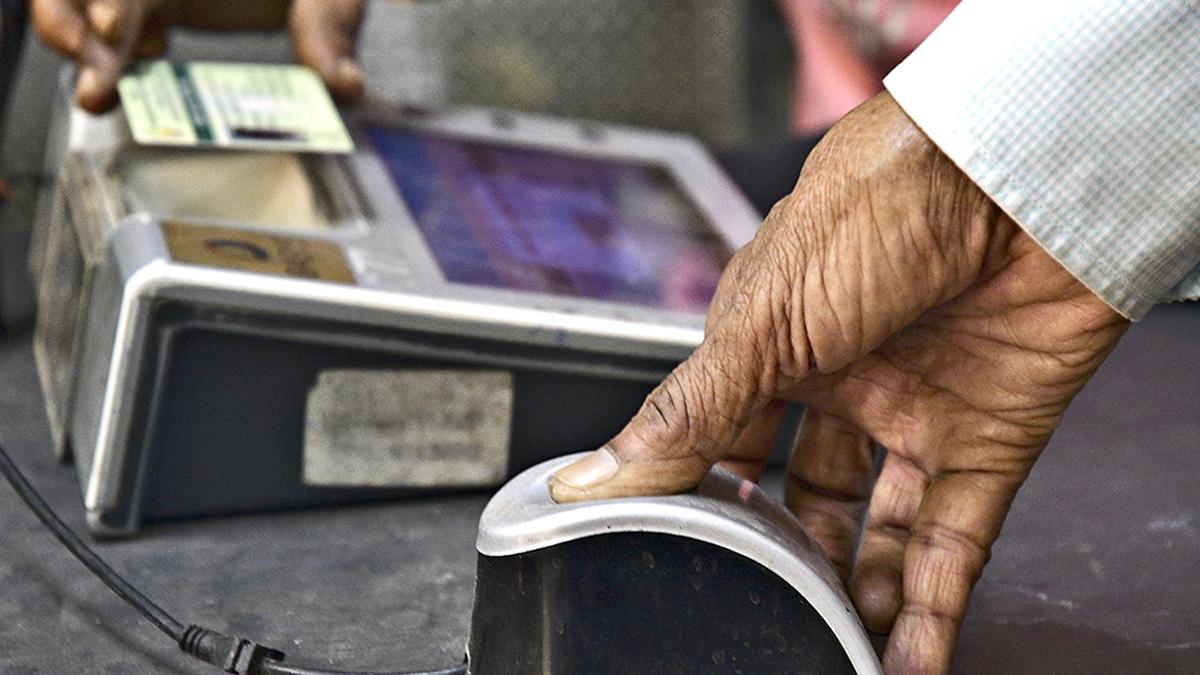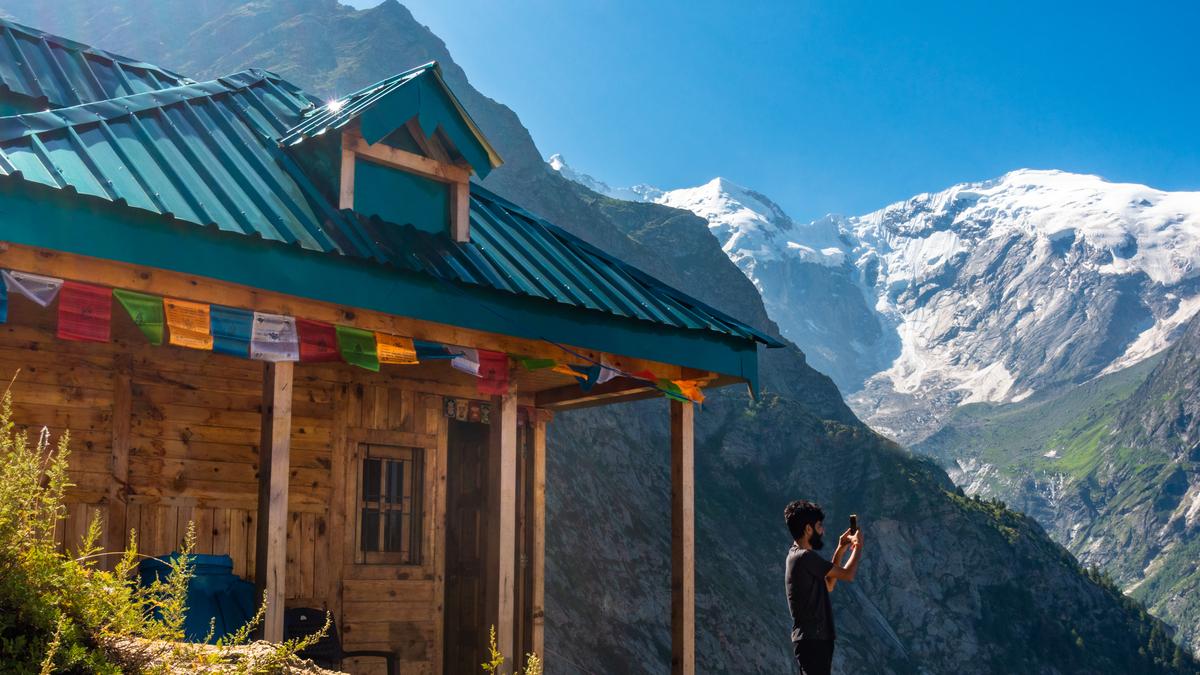Description

Figure 2: No Copyright Infringement Intended
Context:
- As part of the PMKUSUM program, solar power in Rajasthan is expected to make rapid progress.
- Previously it affected work as farmers struggled to get a bank loan.
- Public banks are now responding to state government requests to lend farmers without collateral to install solar systems in barren or semi-arid areas.
Details:
- Rajasthan became the first state in July 2021 to complete the selection of farmers to install solar panels on their land with capacities that exceed the targets set by the Ministry of New and Renewable Energy.
- Rajasthan Renewable Energy Corporation has allocated a 722 MW plant to 623 farmers under the KUSUM program.
- The electricity generated by the PV system will be purchased at a price of Rs 3.14 per unit for 25 years after the power purchase agreement is signed.
About PM Kusum:
- Ministry of New and Renewable Energy (MNRE) has launched the Pradhan Mantri Kisan Urja Suraksha evem Utthan Mahabhiyan (PM KUSUM) Scheme for farmers for installation of solar pumps and grid connected solar and other renewable power plants in the country.
- The scheme aims to add solar and other renewable capacity of 25,750 MW by 2022 with total central financial support of Rs. 34,422 Crore including service charges to the implementing agencies.
The Scheme consists of three components:
- Component A: 10,000 MW of Decentralized Ground Mounted Grid Connected Renewable Power Plants of individual plant size up to 2 MW.
- Component B: Installation of 17.50 lakh standalone Solar Powered Agriculture Pumps of individual pump capacity up to 7.5 HP.
- Component C: Solarisation of 10 Lakh Grid-connected Agriculture Pumps of individual pump capacity up to 7.5 HP.

Significance of the Scheme
- Increase in the income: This program provides landowners with a stable and continuous source of income for 25 years by using dry / non-cultivable land.
- Employment: It will also help increase green energy production and create jobs in rural areas, later enabling the government sector to solarize pipe wells and pump water irrigation projects.
- Energy availability and security: This system makes available local solar / other renewable energy sufficient to power rural load centers and agricultural pump units that primarily need electricity during the day.
- Reduction of transmission loss: These power plants are distributed near agricultural loads or substations, reducing transmission losses for STUs and Discom. In addition, this program helps Discom achieve its RPO goals.
- Cost reduction: Solar pumps save diesel costs for operating diesel pumps and provide farmers with a reliable source of irrigation through solar pumps.
- Environmentally Friendly: This program helps prevent harmful pollution from the operation of diesel pumps.
- Achieve national goals: This supports India's commitment to increase the percentage of installed electricity capacity from non-fossil fuels to 40% by 2030.
Challenges:
- Regulation: Very few federal states have started bidding or commissioning projects for solar feed-ins or grid-connected pumps.
- Operational and technical: Discoms is more utility than distributed PV (under the program) because of the higher cost of distributed PV and the loss of location benefits due to the exemption from interstate transmission system (ISTS) fees
- Financially: The current barriers to their introduction are concerns about their economic feasibility in the face of high agricultural subsidies, supplying excess electricity when selling water or irrigating additional land.
- Lack of Credit: In addition, many unsecured farmers do not have access to bank credit.
- Lack of trust: The grid connection model requires the pump to be measured and billed for billing, but lacks trust between the farmer and the nightclub.
- Awareness: barriers include limited awareness of solar pumps and the inability of farmers to pay upfront payments.
- COVID: The pandemic turmoil, limited purchases from the state, and implementation challenges all affected the implementation of the program.
Way Forward:
- Extending the Scheme: Extending PM KUSUM's schedule to 2022 and beyond will allow DISCO to coordinate this scheme with its electricity procurement plan.
- Create a fair competition for distributed solar systems: To counter the prejudice against distributed solar energy, address substation counterparty risk and grid failure risk, standardize pricing to reflect the higher costs of distributed power plants, and solar system ISTS.
- Optimize land management: Optimize land management through coordination between departments. This helps reduce delays in leasing or converting farmland for non-agricultural purposes such as solar power.
- Innovative solution: Government should innovative solutions to fund the contributions of farmers. Government need out-of-the-box solutions, such as the Karnataka pilot project, a special vehicle for farmers to help farmers install solar power plants on their farms.
- Intelligent solution: Build trust by deploying solutions such as smart meters and smart transformers and working with farmers.
Array
(
[0] => daily-current-affairs/pm-kusum-scheme
[1] => daily-current-affairs
[2] => pm-kusum-scheme
)








